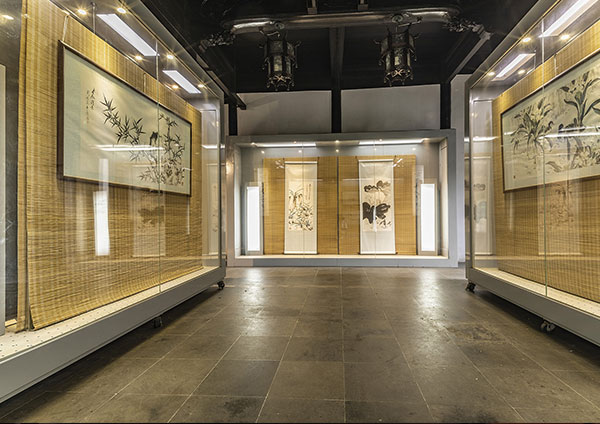Promoting Chinese culture should not be rushed
Time 2019-11-12
Historically, Chinese culture has always won the favor of other nations by its charm rather than its deliberate promotion
Chinese culture is not only paper-cut, square characters, flower boxing, leg embroidery, Tang suit, but also the vitality of Chinese civilization and the growing vitality of modern China
It is a subtle process for Chinese culture to be accepted by people of different cultures. It takes a long time and patience of promoters
The promotion of foreign culture is in a rush
China's cultural influence is still weak as a whole compared with the economic field that has been widely concerned in the world. Practitioners in the cultural community are making positive efforts to reverse this situation. However, it should be noted that at present, there is a momentum of over haste in our promotion of foreign culture.
For example, it has been reported recently that Confucius Institute has developed too fast in foreign countries, and relevant supporting work, including textbook compilation, qualified teachers and so on, is far behind. In terms of film and television, although the amount of overseas sales has increased, many overseas films are relatively single in subject matter, rough in production, lack of deep connotation and deep cultural power that move people's hearts. In terms of publishing, the number is also increasing, but there is a lack of books with high content, editing, binding, translation and printing quality. This momentum of impatience is obviously not conducive to the extensive and lasting spread of Chinese culture. Because of being too impatient, it will cause unnecessary misunderstanding and even disgust, and even be said to be expanding "soft power" or creating the so-called "Chinese culture threat theory" with some ulterior motives.
Cultural promotion does not depend on communication ability
Just like the promotion of excellent products, first of all, the promotion of excellent quality and culture of the products themselves is required, and first of all, the promoters are required to provide the excellent culture needed by others. One culture can be favored by other nations, and its attraction is more from the charm of the culture itself than the promotion ability. In history, Chinese culture has always won the favor of other nations by its charm rather than deliberate promotion. For example, Japan sent "envoys to the Tang Dynasty" and "envoys to the Song Dynasty" to study Chinese culture; in Europe in the 18th century, people hoped to get rid of the oppression of religion and feudal autocracy, and drew a lot of strength from the Chinese philosophy spirit of advocating nature.
If culture lacks connotation and relies too much on promotion ability, it may not really penetrate into people's hearts and obtain lasting resonance and influence, or even cause people's antipathy. In recent decades, with advanced technology and powerful media power, American commercial blockbusters and fast food culture have expanded rapidly in the world. However, behind this seemingly successful cultural influence, it has not been really recognized by other countries. Nowadays, in the face of American culture, people in many countries will feel uncomfortable and even have a sense of cultural threat. In Europe, many filmmakers, writers and artists are working hard to create their own works and promote the "slow food" culture to fight against the huge impact of American culture on Europe. This is not only a collective spontaneous behavior, nor a simple cultural conservatism, but also the consciousness of European cultural people, and the embodiment of European culture's desire for progress. In their view, American culture is lack of details and full of business atmosphere, which will gradually devour European culture.
Those successful experiences in promoting the culture of our country show that only by digging into the connotation of our own culture can we spread it more easily. For example, from the TV series "Da Chang Jin" and "Shang Dao" produced in Korea, we can see that the producers have grasped the essence of Korean traditional culture deeply and accurately. These works can cause wide repercussions in many places outside Korea, because the cultural essence of their transmission has aroused resonance. In the same way, Japanese animation and game production are very popular in many regions, including Europe and the United States. One important reason is that their animation production itself reflects some deep cultural thinking.
Throughout the world, every country is sparing no effort to promote its own culture. However, there is another feature of successful promotion cases, that is, they have experienced a long process. For example, Goethe college in Germany has developed 144 branches around the world in more than 50 years. The British Council has spent more than 70 years establishing more than 200 foreign branches. According to China's plans, by 2010, there will be 500 "Confucius Institutes" around the world. Isn't that a bit of a rush for quick success and instant profits? Is the plan based on a careful investigation of the actual needs of countries around the world? Has the promotion ability been fully demonstrated? Are we looking at it too much from a business perspective?
China needs culture promotion strategy
There is no denying that foreigners are more and more interested in Chinese culture, but this interest comes from the sense of mystery, strangeness and freshness. Today, most of the things we present to foreign countries are superficial or old-fashioned things of Chinese culture, such as Kung Fu, lion dance, acrobatics and folk performances. It is true that these cultural displays can promote the world's understanding of China, but they are hard to really impress people. After freshness, the rest may be more sensory fatigue and boredom. The most typical example is kung fu movies in the film and television industry.A few years ago, the Chinese Kung Fu in crouching tiger, Hidden Dragon once caused a sensation in the West. In recent years, Kungfu films and costume films have been launched one after another. Heroes, limitless, banquet and the golden armour are all in the city. One by one, they are more and more "amazing", but their recognition in the world is getting worse and worse. Its root lies in impatience and rashness, blind duplication, though not good.
It can be predicted that as China's international influence continues to increase, so will the enthusiasm of foreign countries to understand Chinese culture. This brings us a new question: what is the real excellent culture we can promote? Chinese culture is not only paper cutting, square characters, flower boxing, leg embroidery, Tang suit, but also the vitality of Chinese civilization in the process of thousands of years' continuous development and the growing vitality of modern China. For example, what is the Chinese way of life? How does Chinese ethics work in society? Why do Chinese families often take "less rich than three generations" as a warning? How does the distinction between "scholars, peasants and businessmen" shape China's political framework? How does a political philosophy with Chinese characteristics, such as "cultivating one's moral integrity, governing one's family and the world", coordinate the relationship between individuals and the state, and run through the whole civilization? What is the spiritual source of contemporary Chinese people's hard work?
Just as the most significant influence of Western civilization on the world is not the superficial cultural things such as ABC, hippie, McDonald's, but the concept of democracy, freedom, human rights and sovereignty advocated since the Renaissance, if Chinese culture is to have a significant impact on the future of the world, it should not only be reflected in the superficial cultural forms such as language, Kung Fu, lion dance, etc., but also in the thousands of years The outlook on life and the world of Chinese civilization should embody the new ideas and ideas created on the basis of tradition. This may not be achieved by running hundreds of colleges teaching Chinese in foreign countries in a short period of time, shooting several films and TV plays that can be shown abroad, holding several large-scale parties that can be staged in a foreign city, and holding several Chinese and foreign friends' gatherings. It requires us to make long-term efforts to be able to cut through water and stone.
Culture is the natural development of human beings in the long-term historical process, which determines the way of cultural promotion. It is not a kind of soft and infiltrative force, like military or political influence, to make others submit by some means of promotion or coercion. It will take a long time and the patience of the promoters to let culture really come into other people's hearts and be accepted by people of different cultures. As Du Fu's poem describes: "with the wind into the night, moisten things silently.".
In order to achieve this, the author believes that China needs to formulate a long-term strategy of cultural promotion, like the economic development strategy, and implement each step in stages: first, we should sort out, summarize and refine the essence of China's own culture, then evaluate the positive and negative effects of cultural promotion from a long-term perspective, examine the real needs of the world for Chinese culture, and then finish step by step Be good at all kinds of Chinese culture promotion entities, such as Confucius Institute, book export, etc., in order to achieve the best effect of Chinese culture promotion.


